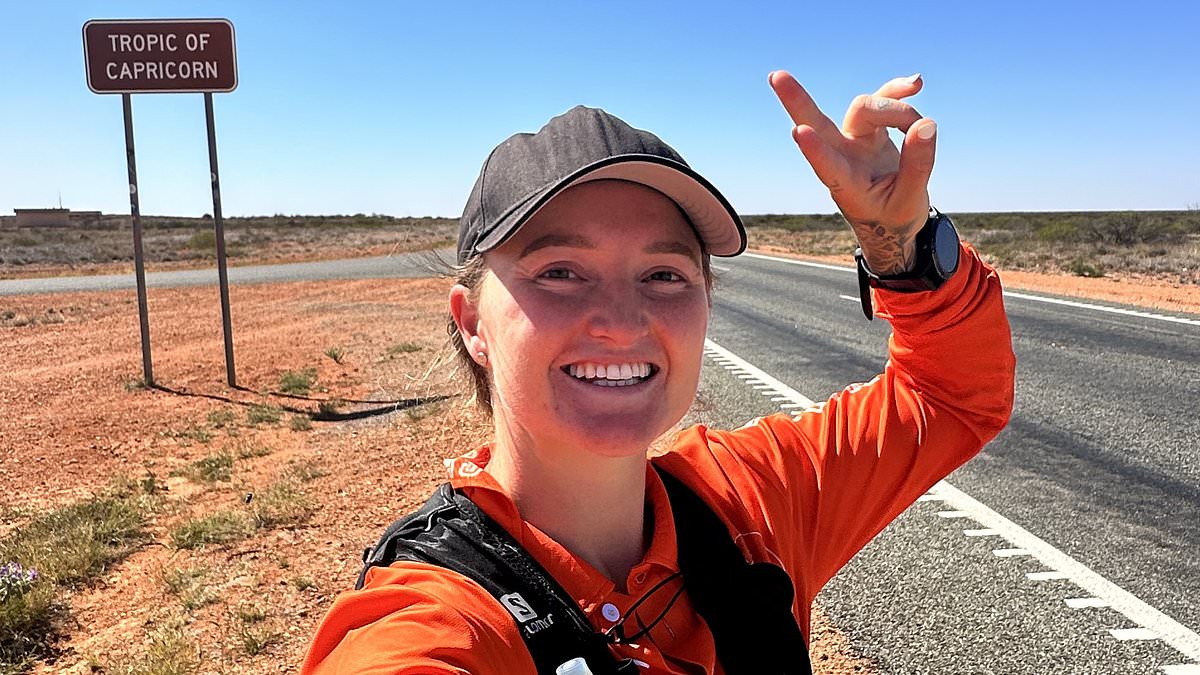A former FIFO worker has lifted the lid on how the industry broke her mental health before a major car crash ended up changing her life for the better.
Brooke McIntosh was just 22 when she followed her mother’s footsteps into the FIFO industry and became a trade assistant in the mines in Western .
Over the next seven years she was hired to drive trucks and help build mining sites.
While enjoying the high salary and on-site banter, Ms McIntosh was starting to be ground down by the constant sexist remarks and long hours.
She started to experience suicidal thoughts, especially while trying to cope with the isolation after the loss of a close friend.
Ms McIntosh said she was lucky to have been given time to think about her future while in hospital recovering from a car crash.
‘I was thinking “why am I wasting my life working in an environment that I really don’t enjoy, when I could be doing something else more impactful”,’ she told Daily Mail .
The now 28-year-old business coach and mentor is calling for Aussies to help her run an over 14,000km lap around to help raise funds for mental health support.
Ms McIntosh said rampant sexism in the industry was one of the main reasons behind her decision to leave.
‘There would be one or two guys who would take things to the next level and just make you feel uncomfortable,’ she said.
‘(They) would make the super inappropriate comment or the sexist remarks, degrade you and put you down.’
She recalled being catcalled by a co-worker after being tasked with reversing a truck, who yelled ‘I would like to see what else you could put in reverse’.
‘What’s the point of that? Putting sex into things that do not need to be put like that in any way,’ Ms McIntosh said.
‘I’m all for having banter, and I’m all for jokes. But when it comes derogatory or sexual comments, it’s a no.’
She added that the sexist remarks made her feel like a ‘piece of meat’ and that she was afraid to call out the behaviour because she was one of the few women on site.
‘It’s a male dominated workplace, so if you can’t handle it, don’t get into it. Or if you’re in it, just put up with it,’ she said.
Having enjoyed running since she was 12, the long hours on site meant she found it ‘unsustainable’ to continue training which always helped her mental health.
‘My lifestyle at the time was waking up in the morning at three o’clock, go to the gym for an hour and a half, get ready for work, go to work for 13 hours, come home, train again and then do it all over,’ she said.
‘I was just feeling isolated, alone. I was going through a lot.
‘One of my friends had taken his life… and then when I came home, I was just unhappy, just couldn’t find a light (and) contemplating taking my own life.’
Despite being at her ‘low point’, Ms McIntosh received a wake-up call in the form of a major car crash with a truck travelling 100km/h while off-site.
‘It was when I was on the hospital bed, that’s where I realised I didn’t want to leave Earth, I just wanted the pain to end,’ she said.
The realisation led to Ms McIntosh quitting FIFO to become a self-employed business coach and commit to running over 1600km from the Pilbara to Perth in July last year to raise $75,000 for The Blue Tree Project and 20Talk.
Ms McIntosh said she chose the route to help raise awareness for her male FIFO colleagues in the Pilbara who were also struggling with their mental health.
‘It was the best challenge of my life. It was hard, but it was the best thing I’ve ever done,’ she said.
After crossing the finish line in Perth – and completing a marathon the following week – Ms McIntosh had already started making plans for her next run.
‘Why am I stopping now? I’m so happy, I’m living with purpose, I’m creating an impact, inspiring and saving people’s lives,’ she said.
With the help of her running coach, she is now preparing to run about 80km a day for an estimated 180 days from March to complete a lap around the nation.
The event, Just One More, is hoping to raise a record-breaking $1.4million for the Blue Tree Project.
Despite now living a life ‘with purpose’, Ms McIntosh said there’s still days where she misses FIFO work, especially truck driving.
‘I personally encourage everyone to give FIFO a go, even females,’ she said.
‘But I also prepare them for what its really like, you’ve got to have thick skin, stand up for yourself and call out b***shit.’
Lifeline 13 11 14
Suicide Call Back Service 1300 659 467
